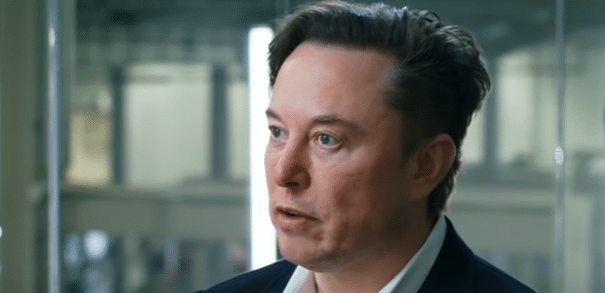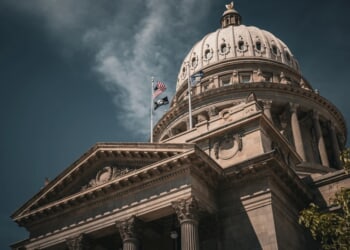Trade wars are back in fashion. And so is Milton Friedman.
A video of Friedman explaining the miracle of the pencil has gone viral, amassing 42.5 million views and being shared by Elon Musk and many others. The video underscores a simple but profound idea: no single person on earth knows how to make a pencil. Yet, it gets made. Every day. Billions of times over.
— Elon Musk (@elonmusk) April 7, 2025
Friedman was drawing on I, Pencil, the 1958 essay by Leonard Read, which remains one of the most powerful reflections on economic freedom ever written. A pencil, he reminds us, is not made by a single person, company, or country. It emerges from the quiet cooperation of strangers: loggers in Canada, rubber tappers in Malaysia, truck drivers in Tennessee, investors in cities you’ll never visit.
It’s not just a lesson in trade, it’s a lesson in humility. Commerce is not coercion. It’s trust. Voluntary exchange. The miracle of decentralized coordination across nations, industries, and people.
And yet today, that miracle is under attack. Not by foreign adversaries, but by our own government.
A pencil is made possible by open trade. So is a smartphone. So is the fertilizer a farmer spreads across Iowa soil, the medical equipment in a rural clinic, the steel rods in a Georgia construction site. American businesses rely on global inputs to stay competitive. American families rely on affordable goods to make ends meet. (RELATED: Rhetoric and Reality on American Manufacturing)
When we raise tariffs, we don’t just tax the “foreigners.” We raise the price of everything we build, grow, and use. We punish the very cooperation that makes everyday life more affordable and enterprise more possible. (RELATED: False Justifications for Trump’s Tariff Policy)
The fact that we run trade deficits with countries like Madagascar, where vanilla is grown for our desserts, or Vietnam, where the tennis shoes for our morning runs are sewn, is now treated as a scandal. The Trump administration’s tariff policy is based on the assumption that every trade deficit is evidence of cheating, unfairness, and harm to Americans.
They imposed a 47 percent tariff on Vietnam and 46 percent on Madagascar, as if these countries had an obligation to buy as much from us as we buy from them. As if these exchanges were signs of weakness or betrayal rather than cooperation. As if America were being exploited by the very people helping make our lives more livable.
This is not just bad economics. It’s bad moral philosophy.
In truth, a trade deficit simply means we buy more goods from a country than they buy from us. That’s not theft. That’s not betrayal. And it certainly isn’t evidence of exploitation. It’s the result of mutually beneficial exchanges, often accompanied by capital inflows, foreign investment, and global trust in the American economy. You don’t run a current account deficit with the world unless the world is eager to invest in your future. (RELATED: Tariffs, a Solution in Search of a Problem)
Yes, it’s true that many countries still raise unfair barriers to American goods. That’s a real problem. But it calls for real solutions: diplomatic strategy, institutional reform, and global pressure. Not blanket tariffs handed out like punishment coupons. The right answer to bad trade policies abroad is not worse trade policies at home.
But even leaders whose policies many view with skepticism, like Franklin Roosevelt and Harry Truman, understood that global leadership required more than impulse. Roosevelt’s postwar architecture, from Bretton Woods to the GATT, and Truman’s embrace of institutional frameworks like the Marshall Plan and NATO, were not necessarily rooted in constitutional restraint. But they did reflect a recognition that American interests must be secured through structure, not spectacle.
What we have now is something else entirely: tariffs issued by executive memo, businesses strong-armed into “patriotic” investment, trade strategy reduced to a loyalty test. It’s not America as a shaper of rules or a builder of durable norms. It’s foreign economic policy conducted like a personal vendetta, improvised, impulsive, and transactional. (RELATED: Presidents Are Not Economic Magicians)
That’s not how the Founders imagined economic leadership. They believed in institutional balance: in Congress, not the executive, holding the power to tax. They built a republic of rules, not personal deals. This isn’t how a serious country operates. This is not a rules-based economic order. This is transaction-by-transaction politics. Businesses are being asked to shift supply chains and reinvest in the U.S. not because of long-term stability or reform, but because they’re told, “Trust me.”
Tariffs are taxes on American consumers and businesses. They make inputs more expensive, reduce choice, and slow investment. They don’t bring jobs back — they make the tools to create those jobs more costly.
During the campaign, Vice President JD Vance claimed that “a million cheap, knockoff toasters aren’t worth the price of a single American manufacturing job.” The line got applause. But it betrayed a dangerous economic illusion.
Vance sees the toaster. He doesn’t see the millions of families who bought that toaster for $20 instead of $80 and used the savings for groceries, medicine, or a child’s school supplies. He doesn’t see the small business owner who bought cheaper equipment and hired another worker. He doesn’t see the everyday miracles of freed-up capital, redirected investment, and second-order job creation.
Henry Hazlitt called this the fallacy of the “seen and unseen.” It’s the oldest trick in politics: show the factory job you might save, hide the thousands of better futures you quietly destroy.
If we want a freer, fairer global economy, we don’t get there by torching trust and slapping taxes on ourselves. We get there by enabling investors and entrepreneurs to build competitive industries, by investing in lifelong education and innovation, and by strengthening institutions that last longer than one man’s grievance.
That’s what America used to stand for: rules, not whims; institutions, not improvisation.
Steve Miran argues that because the U.S. has run trade deficits for decades, the economic models must be broken. But that’s like saying gravity stopped working because planes fly. The persistent U.S. deficit isn’t a flaw in the system. It’s a reflection of how much of the system depends on us. Models need to be read with the institutional context in mind.
The stakes are bigger than a trade balance. What’s being traded away — at a terrible cost — is the American model of principled leadership, rooted in liberty, trust, and rules. We lose that, we lose the quiet miracle behind a billion pencils.
READ MORE:
The False Promise of President Trump’s Trade Policies




![Jasmine Crockett Justifies Mass Illegal Immigration With Bizarre Argument [WATCH]](https://www.right2024.com/wp-content/uploads/2025/03/1742007023_Jasmine-Crockett-Justifies-Mass-Illegal-Immigration-With-Bizarre-Argument-WATCH-350x250.jpg)


![NYC Tourist Helicopter Falls into Hudson River, Siemens Executive and Family Among Those Killed [WATCH]](https://www.right2024.com/wp-content/uploads/2025/04/NYC-Tourist-Helicopter-Falls-into-Hudson-River-Siemens-Executive-and-350x250.jpg)








